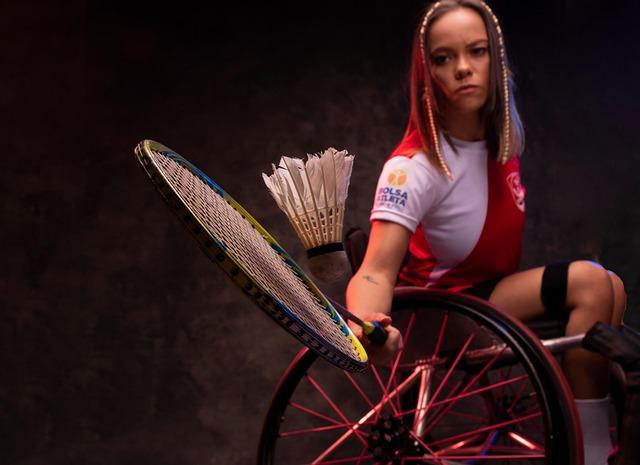In the competitive world of collegiate athletics, strength training has become a cornerstone of athlete development and performance enhancement. A recent study published in The Sport Journal sheds light on how NCAA Division I athletes perceive strength training within their rigorous training regimens. Exploring the attitudes, motivations, and challenges faced by these elite student-athletes, the research offers valuable insights into the role strength conditioning plays in their overall athletic experience. This article delves into the findings, revealing the varying perspectives across different sports and how these perceptions influence training commitment and outcomes.
Perceived Benefits and Challenges of Strength Training Among Division I Athletes
Division I athletes consistently highlight strength training as a cornerstone of their athletic development, attributing enhanced power, injury prevention, and improved confidence to their rigorous lifting routines. Many report that beyond physical gains, strength sessions foster mental toughness and discipline, which translate into better performance on the field or court. The social environment of the weight room, marked by camaraderie and competition, often motivates athletes to push beyond their limits. However, while the benefits are widely recognized, athletes also acknowledge that balancing intense training cycles with academic commitments and sport-specific practice can present logistical challenges.
Despite positive perceptions, common obstacles persist, including concerns over overtraining, time management, and occasional lack of personalized coaching. Some athletes express frustration over generic strength programs that do not address sport-specific needs or individual weaknesses. Recovery and nutrition remain ongoing challenges, with some struggling to optimize these areas. Below is a summary of key benefits and challenges as reported by surveyed Division I athletes:
- Benefits: Increased power output, injury resilience, enhanced focus
- Challenges: Scheduling conflicts, recovery management, individualized programming
| Aspect | Positive Impact (%) | Reported Issue (%) |
|---|---|---|
| Injury Prevention | 85 | 10 |
| Time Management | 70 | 45 |
| Sport-Specific Adaptation | 65 | 50 |
| Mental Resilience | 78 | 15 |
How Strength Training Impacts Performance and Injury Prevention in Collegiate Sports
Strength training serves as a cornerstone for elevating athletic performance among NCAA Division I athletes by enhancing key physical attributes such as power, speed, and endurance. Athletes consistently report that integrating structured weightlifting regimens enables them to push beyond their limits in competition, translating raw strength into sport-specific skills. Moreover, strength gains contribute to improved neuromuscular coordination, allowing for more precise and explosive movements that directly impact game-day outcomes.
Beyond performance boosts, strength training plays a crucial role in mitigating injury risks-a critical concern for collegiate athletes. The development of resilient musculature and reinforced connective tissues effectively reduces vulnerabilities to common sports-related afflictions like ACL tears, strains, and sprains. Key benefits acknowledged by athletes include:
- Enhanced joint stability decreasing ligament stress
- Improved muscular balance preventing overuse injuries
- Faster recovery times through increased blood flow and tissue repair
| Performance Metric | Perceived Impact of Strength Training | Percentage of Athletes Reporting Improvement | ||||||||||||||||||||||
|---|---|---|---|---|---|---|---|---|---|---|---|---|---|---|---|---|---|---|---|---|---|---|---|---|
| Explosive Power | Significant enhancement in jump height and sprint speed | 85% | ||||||||||||||||||||||
| Injury Resistance | Reduced incidence of muscle strains and joint issues | 78% | ||||||||||||||||||||||
| Endurance | Better fatigue management during prolonged play |
Strength training serves as a cornerstone for elevating athletic performance among NCAA Division I athletes by enhancing key physical attributes such as power, speed, and endurance. Athletes consistently report that integrating structured weightlifting regimens enables them to push beyond their limits in competition, translating raw strength into sport-specific skills. Moreover, strength gains contribute to improved neuromuscular coordination, allowing for more precise and explosive movements that directly impact game-day outcomes. Beyond performance boosts, strength training plays a crucial role in mitigating injury risks-a critical concern for collegiate athletes. The development of resilient musculature and reinforced connective tissues effectively reduces vulnerabilities to common sports-related afflictions like ACL tears, strains, and sprains. Key benefits acknowledged by athletes include:
Future OutlookIn conclusion, the insights gathered from NCAA Division I athletes highlight the evolving perceptions surrounding strength training within collegiate sports. As these athletes increasingly recognize the role of tailored strength programs in enhancing performance and reducing injury risk, coaches and athletic departments are encouraged to continue integrating evidence-based training methods. These findings underscore the importance of fostering informed, athlete-centered approaches to strength development that align with the demanding standards of Division I competition. Future research and ongoing dialogue will be essential in advancing strength training practices that support both the physical and competitive well-being of student-athletes. |





